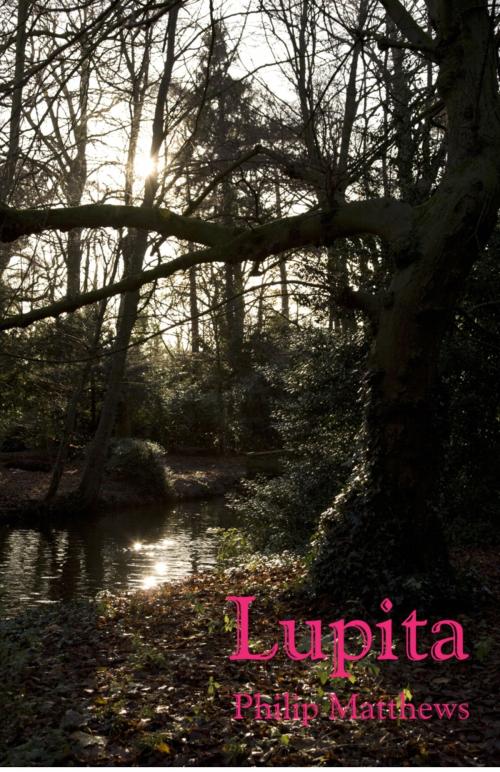| Author: | Philip Matthews | ISBN: | 9781310505331 |
| Publisher: | Philip Matthews | Publication: | January 30, 2014 |
| Imprint: | Smashwords Edition | Language: | English |
| Author: | Philip Matthews |
| ISBN: | 9781310505331 |
| Publisher: | Philip Matthews |
| Publication: | January 30, 2014 |
| Imprint: | Smashwords Edition |
| Language: | English |
Jane Blake, 37, suddenly leaves her mother, with whom she has lived since the death in a car crash of her fiancé thirteen years previously, to try to make a life of her own before it is too late. This action sparks a profound crisis, and she finds that, living alone for the first time, as well as trying to decide what to do with her new freedom, she must re-examine her life in order to make sense of this freedom, that is, discover who she really is.
This situation is complicated by the competing claims and demands of her family. Her mother, embittered by a life of restriction, might be glad to see the last of a clinging child or might suffer abandonment by the only person who actually cared for her. Her father, long separated from the family and living in England, might want to help his favourite daughter without interference from his wife or he might want a housekeeper in old age. Her mother’s lover, Jack, might also want to help his favourite in the family, though this rush of attention could be misunderstood, or else he wants rid of her in order to have her mother to himself. Her sister, Helen, with great ambition for her banker husband, might resent the shifting of the burden of caring for their mother on to her, but complications in her own marriage might just as well tempt her to slip into a relation of dependence, now that her mother has more time for her. These familial pressures heighten old resentments and fears and threaten to draw Jane back into a sterile passivity masked as a capacity to endure suffering, but they also draw out the vulnerable love and sympathy that arise from relations of blood and the long-shared fortunes of family life, feelings that give her an autonomous strength and an integrity that surprises her.
But the most threatening aspect of the crisis is brought to the fore by the attentions of a young man, Michael, who strives to protect himself from the ghost of his dead mother by becoming a philosopher, guarding empty factories at night as a means to developing an ‘open mind’. Jane avoids these attentions at first, but as circumstances draw them together she is obliged to relive her previous disastrous relations with men. Richard, who said he loved her and whom she abandoned alone in a foreign city, and Terry, who was wealthy enough to marry yet whom she drove to despair and death. She comes to realise she has a destructive effect on men, and as Michael’s penchant for intelligent argument opens his mind to very frightening insights, Jane sees that men might well have a destructive effect on her in return. At times Michael certainly seems to consider murder as a solution, though who he might murder is not clear, yet for her part Jane experiences a growth in herself, sometimes like a light, other times like a sea, and so holds to what is vulnerable in her, understanding at the crucial point that love tells the truth if you let it, which turns out to be the case in the end.
Jane Blake, 37, suddenly leaves her mother, with whom she has lived since the death in a car crash of her fiancé thirteen years previously, to try to make a life of her own before it is too late. This action sparks a profound crisis, and she finds that, living alone for the first time, as well as trying to decide what to do with her new freedom, she must re-examine her life in order to make sense of this freedom, that is, discover who she really is.
This situation is complicated by the competing claims and demands of her family. Her mother, embittered by a life of restriction, might be glad to see the last of a clinging child or might suffer abandonment by the only person who actually cared for her. Her father, long separated from the family and living in England, might want to help his favourite daughter without interference from his wife or he might want a housekeeper in old age. Her mother’s lover, Jack, might also want to help his favourite in the family, though this rush of attention could be misunderstood, or else he wants rid of her in order to have her mother to himself. Her sister, Helen, with great ambition for her banker husband, might resent the shifting of the burden of caring for their mother on to her, but complications in her own marriage might just as well tempt her to slip into a relation of dependence, now that her mother has more time for her. These familial pressures heighten old resentments and fears and threaten to draw Jane back into a sterile passivity masked as a capacity to endure suffering, but they also draw out the vulnerable love and sympathy that arise from relations of blood and the long-shared fortunes of family life, feelings that give her an autonomous strength and an integrity that surprises her.
But the most threatening aspect of the crisis is brought to the fore by the attentions of a young man, Michael, who strives to protect himself from the ghost of his dead mother by becoming a philosopher, guarding empty factories at night as a means to developing an ‘open mind’. Jane avoids these attentions at first, but as circumstances draw them together she is obliged to relive her previous disastrous relations with men. Richard, who said he loved her and whom she abandoned alone in a foreign city, and Terry, who was wealthy enough to marry yet whom she drove to despair and death. She comes to realise she has a destructive effect on men, and as Michael’s penchant for intelligent argument opens his mind to very frightening insights, Jane sees that men might well have a destructive effect on her in return. At times Michael certainly seems to consider murder as a solution, though who he might murder is not clear, yet for her part Jane experiences a growth in herself, sometimes like a light, other times like a sea, and so holds to what is vulnerable in her, understanding at the crucial point that love tells the truth if you let it, which turns out to be the case in the end.















